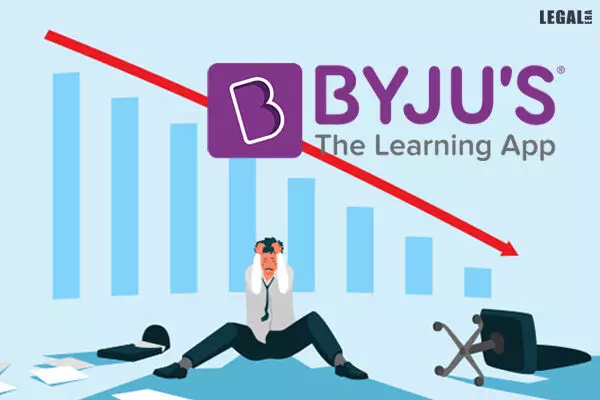- Home
- News
- Articles+
- Aerospace
- Artificial Intelligence
- Agriculture
- Alternate Dispute Resolution
- Arbitration & Mediation
- Banking and Finance
- Bankruptcy
- Book Review
- Bribery & Corruption
- Commercial Litigation
- Competition Law
- Conference Reports
- Consumer Products
- Contract
- Corporate Governance
- Corporate Law
- Covid-19
- Cryptocurrency
- Cybersecurity
- Data Protection
- Defence
- Digital Economy
- E-commerce
- Employment Law
- Energy and Natural Resources
- Entertainment and Sports Law
- Environmental Law
- Environmental, Social, and Governance
- Foreign Direct Investment
- Food and Beverage
- Gaming
- Health Care
- IBC Diaries
- In Focus
- Inclusion & Diversity
- Insurance Law
- Intellectual Property
- International Law
- IP & Tech Era
- Know the Law
- Labour Laws
- Law & Policy and Regulation
- Litigation
- Litigation Funding
- Manufacturing
- Mergers & Acquisitions
- NFTs
- Privacy
- Private Equity
- Project Finance
- Real Estate
- Risk and Compliance
- Student Corner
- Take On Board
- Tax
- Technology Media and Telecom
- Tributes
- Viewpoint
- Zoom In
- Law Firms
- In-House
- Rankings
- E-Magazine
- Legal Era TV
- Events
- Middle East
- Africa
- News
- Articles
- Aerospace
- Artificial Intelligence
- Agriculture
- Alternate Dispute Resolution
- Arbitration & Mediation
- Banking and Finance
- Bankruptcy
- Book Review
- Bribery & Corruption
- Commercial Litigation
- Competition Law
- Conference Reports
- Consumer Products
- Contract
- Corporate Governance
- Corporate Law
- Covid-19
- Cryptocurrency
- Cybersecurity
- Data Protection
- Defence
- Digital Economy
- E-commerce
- Employment Law
- Energy and Natural Resources
- Entertainment and Sports Law
- Environmental Law
- Environmental, Social, and Governance
- Foreign Direct Investment
- Food and Beverage
- Gaming
- Health Care
- IBC Diaries
- In Focus
- Inclusion & Diversity
- Insurance Law
- Intellectual Property
- International Law
- IP & Tech Era
- Know the Law
- Labour Laws
- Law & Policy and Regulation
- Litigation
- Litigation Funding
- Manufacturing
- Mergers & Acquisitions
- NFTs
- Privacy
- Private Equity
- Project Finance
- Real Estate
- Risk and Compliance
- Student Corner
- Take On Board
- Tax
- Technology Media and Telecom
- Tributes
- Viewpoint
- Zoom In
- Law Firms
- In-House
- Rankings
- E-Magazine
- Legal Era TV
- Events
- Middle East
- Africa
Byju Insolvency: RP Pankaj Srivastava Challenges NCLT's Disciplinary Order

Byju's Insolvency: RP Pankaj Srivastava Challenges NCLT's Disciplinary Order
Pankaj Srivastava, the Interim Resolution Professional (IRP) overseeing Byju's insolvency proceedings, has filed an appeal against the National Company Law Tribunal's (NCLT) order calling for disciplinary action against him. Srivastava contends that the tribunal passed the order without affording him a proper opportunity to be heard and that the decision is contrary to established legal principles.
According to Srivastava, the NCLT disregarded his defenses, failed to consider his lack of vested interest, and made unfair observations without basis. He argued that he was ‘castigated’ without a fair hearing, as his counsel was unavailable at the time of proceedings. He further stated that he did not withhold any documents and had ensured timely submission of all relevant records.
On January 29, the NCLT directed the Insolvency and Bankruptcy Board of India (IBBI) to initiate disciplinary proceedings against Srivastava, citing bad faith conduct during Byju’s Corporate Insolvency Resolution Process (CIRP). The order was issued after Srivastava initially admitted Glas Trust and Aditya Birla Finance into Byju’s Committee of Creditors (CoC) but later disqualified them, leading to a single creditor controlling 100% of the voting rights. The tribunal concluded that Srivastava's actions were misleading and prejudicial to the CIRP, making him unfit to serve as an officer of the tribunal.
The NCLT reinstated Glas Trust and Aditya Birla Finance in the CoC, ordered Srivastava’s removal as Resolution Professional (RP), and nullified all decisions made by the CoC since August 2024. In his appeal, Srivastava contends that his actions were in line with Section 18(1)(b) of the Insolvency and Bankruptcy Code, 2016, and that the reclassification of Glas Trust and Aditya Birla Finance’s claims as operational debts was based on the nature of their agreements with Byju’s. He has urged the National Company Law Appellate Tribunal (NCLAT) to overturn the NCLT order or, alternatively, expunge the negative observations against him and halt disciplinary proceedings.
Meanwhile, Riju Raveendran, Byju Raveendran’s brother and a promoter of Byju's, has filed an appeal challenging the inclusion of Glas Trust and Aditya Birla Finance in the CoC. Raveendran argues that the NCLT could not have reconstituted the CoC while a settlement application with the Board of Control for Cricket in India (BCCI) was pending. He claims that the settlement with BCCI predated the CoC formation, making the withdrawal application the most pressing matter. He further argues that NCLT's decision to prioritize CoC formation over the withdrawal application contradicts the Supreme Court’s mandate, which had granted BCCI and Raveendran the liberty to seek appropriate remedies after their settlement.
Additionally, Raveendran has questioned Aditya Birla Finance Limited’s status as a financial creditor, asserting that its agreement with Byju’s was service-based rather than a loan. He also contends that Glas Trust’s claim is contingent due to ongoing litigation.
Raveendran’s appeal was listed before the NCLAT Chennai Bench on Thursday but has now been referred to the appellate tribunal’s Chairperson following the recusal of a Judicial Member. Srivastava’s case is expected to be heard alongside Raveendran’s appeal in the next hearing.



